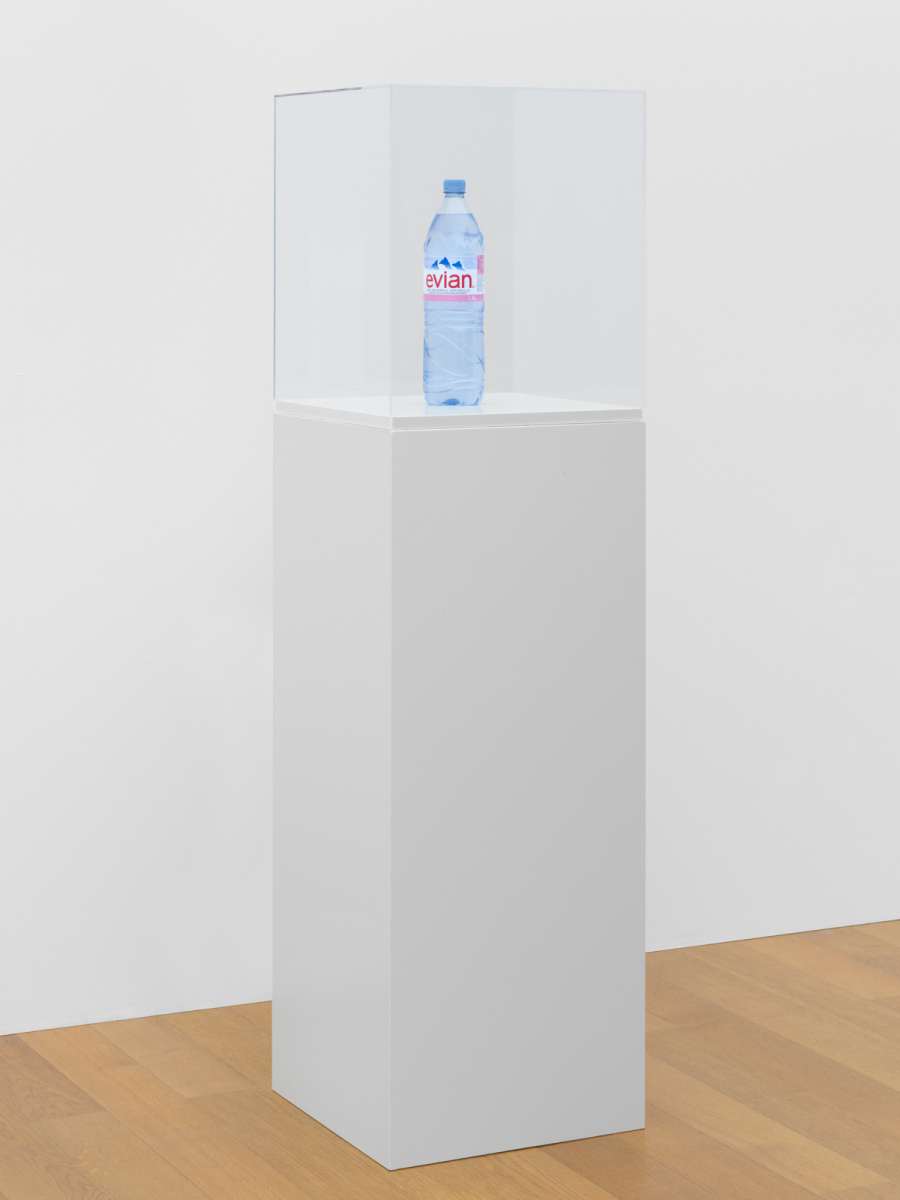Plastic bottle, silicone, pigments, pedestal
147,3 x 40 x 40 cm
Kunstmuseum Liechtenstein, Vaduz / donation of the artist
Within contemporary art production, Pamela Rosenkranz's oeuvre is a distinct and unmistakable contribution to the philosophical and scientific understanding of the human being and nature, that has been radically changing for some years now. From this vantage point, the artist uses her artistic practice to address general questions concerning human identity and the position of humans in natural history, but also in aesthetics.
In 2015, Rosenkranz represented Switzerland at the 56th Venice Biennale with the exhibition Our Product curated by Susanne Pfeffer at the Swiss Pavilion. In an interview about her work for the Biennale, the artist mentions a longer stay in Venice in 2009 during which the mass tourism plaguing the city made her realise that the Anthropocene is not only manifested in the world as a lifestyle, but that its effects are also made visible by this lifestyle. The overused canals in the historic centre full of PET bottles from all over the world! Rosenkranz mentions brands of water from New Zealand, France, Croatia, Morocco, the US, the UK and China in PET bottles, with the saliva left on the rims carrying the genetic traces of those who drank the water into the sea.
Aquamarine (Radiant Teeth) is an Evian brand plastic bottle filled with light blue silicone and part of a series of works. Rosenkranz takes this to illustrate the current cult of bottled mineral water whose (alleged) purity, naturalness and beneficial effect is advertised as if it were some kind of holy water. For although the water is marketed as a natural product, it is in fact in a bottle that has been shipped over long distances. She is interested in the absurdity of this situation and questions how much people take from nature in order to manufacture consumer products.
"Making art means trying to stretch the moment in order to spread an idea out on the material at hand so as to rescue it through history."
Pamela Rosenkranz
Tobias Huber, Pamela Rosenkranz, in: Collection Cahiers d'Artistes 2007, ed. by the Swiss Arts Council Pro Helvetia, Lucerne: Edizioni Periferia, p. 6.
